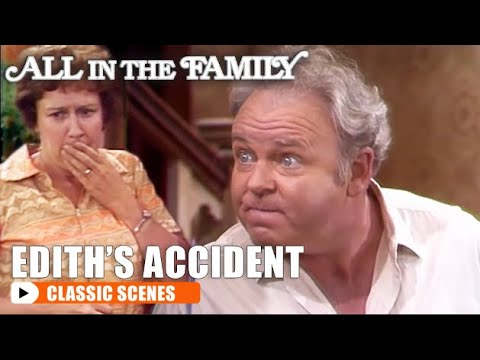
In an age where most sitcoms relied on safe humor and light-hearted escapism, All in the Family stood out like a thunderclap in a quiet room. First airing in 1971, the series wasn’t just different — it was revolutionary. Bold, uncomfortable, and unapologetically real, it confronted American audiences with the very issues they preferred to ignore.
Set in a modest Queens household, the show revolved around Archie Bunker — a working-class bigot with a loud mouth and deeply ingrained prejudices. Yet somehow, Archie was more than just a caricature. He was complex, flawed, and strangely relatable. Played with disarming honesty by Carroll O’Connor, Archie made viewers squirm — but also think.
This was no accident. Creator Norman Lear intended All in the Family to hold up a mirror to society. “We wanted people to recognize themselves,” he said in a 1999 interview, “even when it wasn’t flattering.” The show didn’t preach — it portrayed. And that’s what made it so powerful.
For the first time on American prime-time television, characters talked openly about race, abortion, class, religion, and politics. The show wasn’t afraid to be controversial. In fact, it embraced it. At a time when television largely avoided confrontation, All in the Family turned the living room into a battleground of ideas — and viewers kept tuning in.
Its impact was immediate and lasting. The show paved the way for socially conscious television. Without All in the Family, there would likely be no Maude, The Jeffersons, or Good Times — all Lear creations that further expanded the conversation. Even today’s boundary-pushing comedies like Atlanta, Ramy, or The Bear owe a creative debt to the template All in the Family helped invent.
What’s perhaps most remarkable is how much of the show still resonates today. Watching it now, viewers are reminded that many of the conversations Archie and his family had — about identity, progress, and fear of change — are still happening, often with the same intensity.
All in the Family didn’t offer easy answers. It offered something rarer: honesty, through the lens of comedy. It dared to suggest that laughter might be the first step toward understanding — and maybe, just maybe, toward change.
In the grand story of television, All in the Family isn’t just a chapter. It’s a turning point.